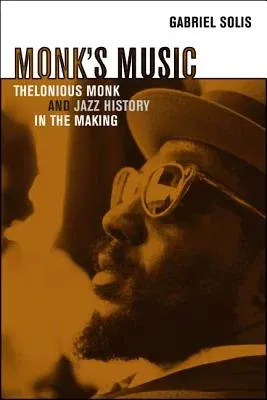Gabriel Solis
(Author)Monk's Music: Thelonious Monk and Jazz History in the MakingPaperback, 5 December 2007

Qty
1
Turbo
Ships in 2 - 3 days
In Stock
Free Delivery
Cash on Delivery
15 Days
Free Returns
Secure Checkout

Print Length
252 pages
Language
English
Publisher
University of California Press
Date Published
5 Dec 2007
ISBN-10
0520252012
ISBN-13
9780520252011
Description
Product Details
Author:
Book Format:
Paperback
Country of Origin:
US
Date Published:
5 December 2007
Dimensions:
22.76 x
15.29 x
1.6 cm
ISBN-10:
0520252012
ISBN-13:
9780520252011
Language:
English
Location:
Berkeley, CA
Pages:
252
Publisher:
Weight:
358.34 gm